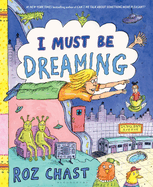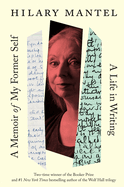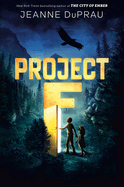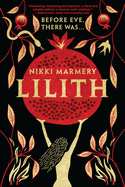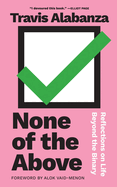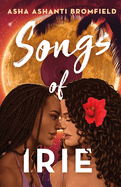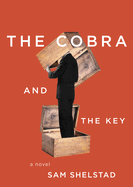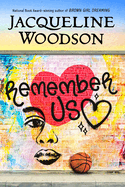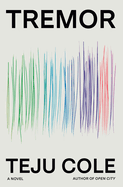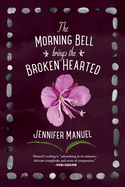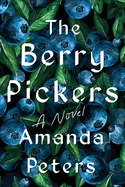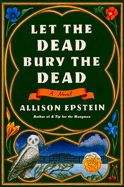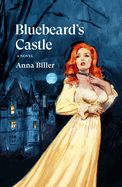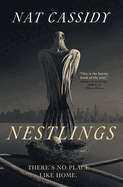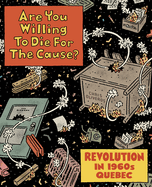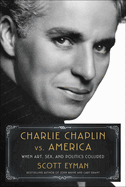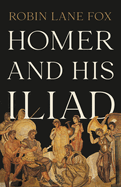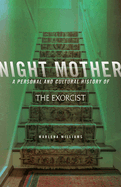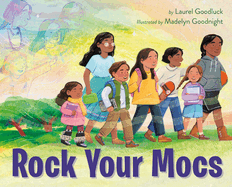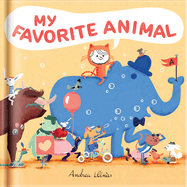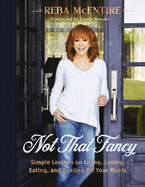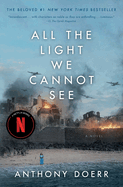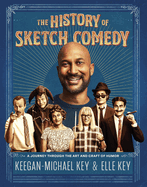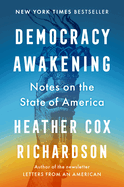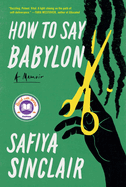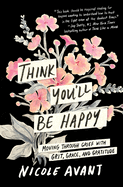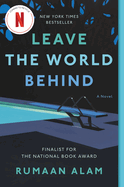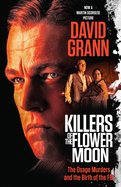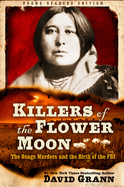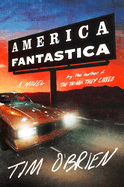Friday, November 3, 2023
We review a pair of standout memoirs this week, though very different in mood and topic: New Yorker cartoonist Roz Chast's I Must Be Dreaming, "a laugh-out-loud funny tour through her dream journal" as well as a brief introduction to dream theory; and A Memoir of My Former Self by the recently deceased Hilary Mantel, "a stunning monument to a brilliant mind and the extraordinary breadth, skill, and talent of a singular writer." Plus Project F, Jeanne DuPrau's "thoughtful, urgent meditation on the origins and dangers of climate change." And so many more!
In The Writer's Life, Terry J. Benton-Walker discusses parenting, self-love, and Black and queer representation in his novels for young people Alex Wise vs. the End of the World and Blood Debts.
Lilith
by Nikki Marmery
Nikki Marmery (On Wilder Seas) revisits ancient myths through a feminist, humanist lens in the lyrical Lilith. Lilith and Adam lived as equals in the Garden of Eden until Adam insists that Lilith submit to him. She refuses. Both Adam and his god punish her and banish her from Paradise. She watches as a new woman, Eve, is given to Adam and comes to understand that Asherah, the Queen of Heaven, is missing. Lilith develops a plan: give the gift of knowledge to Eve, find Asherah, and restore balance to the world.
As daunting as that sounds, Lilith's journey in this richly woven tale turns out to be more complex and far-reaching than she imagined. Lilith, frequently demonized and ostracized, follows the trail of the mother goddess as seen by cultures throughout antiquity, occasionally rejoining a society that doesn't know the woman in their midst is the mythologized succubus and child killer. She crosses paths with Noah's family at the time of the flood, Queen Jezebel in her court, and a radical preacher called Maryam the Magdalene. All the way to the modern day, she witnesses the catastrophic consequences of inequality--until at last she comes to the realization of what must be done to right the world.
Marmery grounds her novel in myths and noncanonical scriptures, with a thorough historical note at the end that curious readers will appreciate. Those who remember Michael Moorcock primarily for Behold the Man will be engrossed. --Kristen Allen-Vogel, information services librarian at Dayton Metro Library
Discover: A tale older than Eve's ignites a quest to bring balance to the world in this rich feminist revision of creation stories.
The Cobra and the Key
by Sam Shelstad
The Cobra and the Key, a wicked, ingenious dark comedy from Sam Shelstad (Citizens of Light), tells the story of an unaccomplished author through the surprisingly effective medium of a substandard writer's guide. Sam--a self-centered thrift store cashier, nursing a delusion that his doorstopper novel, The Emerald, is approaching publication--has decided to compile his authorial wisdom in a writer's guide. He shares valuable advice, including a list of the types of pornography a serious novelist should watch. He also advocates for liberal amounts of balloons with poisonous gas as plot devices, as well as the trick of setting stories in Starbucks so "you won't have to waste any precious space describing everything like some idiot from the Victorian era." He frequently uses examples from the Molly novel, a work in progress based on his failed relationship with a married woman several decades his senior. He reasons that both The Emerald and the Molly novel will be famous by the time readers pick up The Cobra and the Key, provided his scheme to trick an editor's child via a scam centered on Pokémon cards pans out, of course.
Shelstad the author winks at readers as Shelstad the character careens through cringe-worthy moments made funnier by an almost total lack of self-awareness. His wrong-headed writing advice provides an additional layer of off-kilter, eye-rolling hilarity. This diary of an unlovable loser should prove a roaring good time for fans of dark humor and anyone who has ever read a self-help book whose writer emphasized self over help. --Jaclyn Fulwood, blogger at Infinite Reads
Discover: Told in the format of a writer's guide, this dark comedy about a failing author with delusions of grandeur provides hilariously questionable tips for improving one's fiction.
Tremor
by Teju Cole
Tremor, Teju Cole's third novel, is an impressively kaleidoscopic work of autofiction that journeys between the U.S. and Nigeria as it questions the ownership and meaning of Black art. Tunde, a Nigerian photographer and Harvard academic, appears to be an autobiographical stand-in for the author. Tunde's antiquing trip to Maine with his Japanese American partner, Sadako, sparks ethical ruminations. Surprised to find an authentic African headdress on sale, Tunde decides "he ought to rescue it" by purchasing it. Cultural appropriation ("vampirism"), microaggressions, Harvard's history of slavery, and the literal theft of African artifacts are the stuff of his interior musings as well as of his recorded lecture describing museums as "a zone of sustained shocks." Tunde decries the "persistent history of white people thinking they know better than the rest of us."
The time devoted to Tunde's niche obsessions--Black serial killer Samuel Little; jazz and world music; the legend of Sundiata Keita, founder of Mali--edges toward self-indulgent, but Cole (Every Day Is for the Thief) widens the frame with an ever-shifting point of view. The first half sticks close to Tunde via third person, but later his travels occasion a series of first-person testimonials--from a chauffeur, a mural artist, a church musician, and so on--that coalesce into a glistening portrait of contemporary Lagos. Closing sections alternating between Tunde's and Sadako's first-person narration make clear Cole's debt to Virginia Woolf. The sophisticated structure is just one of the highlights of this elegant study of art criticism, suffering, and subjectivity. --Rebecca Foster, freelance reviewer, proofreader, and blogger at Bookish Beck
Discover: Teju Cole's impressively kaleidoscopic third novel travels between the U.S. and Nigeria as it questions the ownership of Black art and the meaning of Black suffering.
The Morning Bell Brings the Broken Hearted
by Jennifer Manuel
A white schoolteacher serving an isolated Canadian Indigenous community realizes she is the one who needs an education in the moving, atmospheric The Morning Bell Brings the Broken Hearted by Jennifer Manuel (The Heaviness of Things that Float). Molleigh, a recently divorced teacher, comes to the tiny Nuu-chah-nulth town of Tawakin on Vancouver Island to teach elementary school. She deems the village whimsical--with "houses the colours of blue jays and daffodils and ferns, woven into the rainforest"--but her dreams of a classroom filled with curiosity and joy soon melt into disillusionment. The forest around the village feels ominous. Her students struggle with their lessons, and she struggles to connect with them, particularly a foul-mouthed girl named Hannah. She wonders after only a month if she's in the wrong place. Then a child leads Molleigh to a traditionally forbidden island, and she finds herself caught in a web of mystery and secrets. Giant stones appear in her road without explanation. A potentially dangerous story circulates among the children. Molleigh is left wondering if her misstep started the trouble, and whether she should confess to her transgression or leave it buried with her own dark secret.
Manuel's prose, as lush as a rain forest, blooms and possesses an immediacy that speaks to her own history as an educator in Indigenous communities. The story flips the script of a white teacher inspiring impoverished, othered students, instead prioritizing community and tradition. This beautiful, nuanced exploration of crossing a cultural divide echoes with respect and hope. --Jaclyn Fulwood, blogger at Infinite Reads
Discover: A white teacher in a Canadian Indigenous community questions her choices and intentions after a series of misfortunes follows her cultural transgression.
The Berry Pickers
by Amanda Peters
In The Berry Pickers, the debut novel from Indigenous author Amanda Peters, parallel stories span the lifetimes of a Mi'kmaq woman, kidnapped as a toddler, and the families who love her. A poignant quest for truth and an equally determined coverup of a grievous wrong play out over decades, ultimately resolving in peace and forgiveness. Fifty years after the day in 1962 that his sister Ruthie went missing, Joe recalls the typical summer that brought his Mi'kmaq family from Nova Scotia to pick Maine blueberries. With no clues and a cursory police response, the four-year-old's disappearance remained a mystery--and a heartbreak for her family.
Chapters from Joe's point of view alternate with those of Norma's. Raised in an overprotective, affluent Maine home, Norma feels "watched, guarded like a secret," and recalls childhood dreams of a brother, a friend named Ruthie, and a comforting woman "cloaked in darkness." It is apparent early in The Berry Pickers that Norma is Ruthie, which does not detract from the story's suspense. Though the couple who snatched her from the berry field are never sympathetic, Norma questions her past yet remains dutifully loyal to her parents. Familial love is a constant theme: Norma's mother's desperation for a child is echoed by Ruthie's mother's grief at the loss of hers. When Norma has a stillborn daughter, she muses, "no word exists for a parent who loses a child," unaware of the irony of her words. Norma and her Mi'kmaq family eventually find truth and healing in this compelling, poignant novel of loss and hope. --Cheryl McKeon, Book House of Stuyvesant Plaza, Albany, N.Y.
Discover: Decades after her kidnapping, a woman and her biological Indigenous family narrate their stories of loss, hope, and forgiveness.
Let the Dead Bury the Dead
by Allison Epstein
In Allison Epstein's enthralling Let the Dead Bury the Dead, tsarist Russian society is in turmoil after the war with the defeated Napoleonic forces, now in retreat. Army captain Sasha returns to his lover, the charming and mercurial Grand Duke Felix, whose father, the tsar, has exiled him for his wanton ways. Sasha discovers a mysterious woman seemingly in distress in the snow and carries her to the safety of Felix's palace. Once installed in Felix's estate, the enigmatic Sofia captivates the Grand Duke, alienating him from Sasha and sending him out to confront his father with demands for better treatment of the common people. Sasha deeply mistrusts Sofia, suspecting her of being a destructive, manipulative figure he knows from legends: a vila. Sofia also infiltrates a group of dissidents called the Koalitsiya, similarly dividing its constituents as she pushes all factions toward greater conflict and bloodshed. When Felix's attempts at mitigating his father's callousness toward his people go as poorly as Sasha predicts, Felix flees imprisonment, ending up in league with the dissidents and rioting with them.
Epstein (A Tip for the Hangman) imbues this alternate history with elements of fantasy and folklore to create a heady, transportive read. Each character is driven to confront or succumb to the pressures of history and their own desires, and to choose between the people they love and their own ambitions. Let the Dead Bury the Dead is a remarkable rendering of character and history that manages to feel both timeless as well as absolutely of its historical setting. --Elizabeth DeNoma, executive editor, DeNoma Literary Services, Seattle, Wash.
Discover: This thrilling alternate history of Imperial Russia features Sasha, an army captain; his irrepressible lover, Grand Duke Felix; and Sofia, who pits them against each another.
Bluebeard's Castle
by Anna Biller
A charming baron with a questionable past, a gothic castle with a possible haunting, a lonely mystery writer working through her past traumas: What could possibly go wrong? Anna Biller, the director of the cult film The Love Witch, tells the sordid fairy tale of lonely author Judith Moore in Bluebeard's Castle.
Judith, always pushed aside for her much more beautiful sister, falls in love with an attractive and mysterious nobleman named Gavin, who seems to be straight out of her novels. He pulls out all the stops and says all the right things--so much so that Judith, for the first time, "wanted to be merged with another, to be carried away by voluptuousness, to be inside of the sublime." Gavin whisks her away: a quick marriage, a beautiful and adventurous honeymoon, intense sexual games of power, and then the purchase of her very own castle.
But things start to splinter and crack. The mystery of Judith's lover begins to eat away at her. He is also quick to anger, moving from a sweet and supportive husband to a wrathful beast in the blink of an eye. Despite this, Judith repeatedly finds ways to forgive or explain away her husband's behavior, tempting readers to yell, "don't go back into that house!" It's such a classic and fun horror trope, however, that readers will watch her go back into the house anyway. Anna Biller's writing is full and luminous, mirroring the classic fiction of Mary Shelley and Charlotte Brontë--but with a modern bite that keeps readers going back for more. --Dominic Charles Howarth, book manager, Book + Bottle
Discover: Bluebeard's Castle is an intense love letter to gothic fiction of the past, taking readers on a violent fairy tale journey of gaslighting barons and psychotic grand halls.
Science Fiction & Fantasy
Nestlings
by Nat Cassidy
Nat Cassidy (Mary; Steal the Stars) explores terror and sorrow in Nestlings, his urban horror novel written in part to process his own loss and trauma. Reid and Ana win a housing lottery for an affordable apartment in New York City's notorious Deptford building, convincing Reid that their luck is turning following the traumatic birth of their daughter, Charlie. Ana isn't so sure: the top floor isn't safe for a mother in a wheelchair, something is going on next door, and Charlie has changed. But Reid, enamored with the building and its strange residents, remains steadfast that this is what his family needs. Tension builds as readers watch how dreams denied change a family from the inside out: "This felt real. This felt like a life she'd known. When the screams began in the other room, Ana's immediate thought was: This does, too."
Blending real-world emotions with supernatural shadows, both readers and characters alike wonder: What is the nightmare buried in the core of the building? When will Reid's lies of omission catch up with their marriage? What came through the window Ana definitely closed? What's the breaking point of everything unsaid? Would you do anything (really, anything?) to keep your child alive? Cassidy's exercise in horror houses the raw pain of grief: that of an anticipated life that is no longer possible, a body that worked in a way you were used to, a family that didn't always feel such guilt--and, ultimately, whether one is ever really out from under grief's weight. --Kristen Coates, editor and freelance reviewer
Discover: Nestlings is a horror novel that pairs its gory frights with an emotionally impactful exploration of grief and family secrets.
Graphic Books
I Must Be Dreaming
by Roz Chast
Veteran New Yorker cartoonist Roz Chast's graphic memoir I Must Be Dreaming is a laugh-out-loud funny tour through her dream journal, as well as a brief introduction to dream theory. Chast (Going into Town; Can't We Talk About Something More Pleasant?; What I Hate: From A to Z) characterizes dreams as "free entertainment" and "a nightly reminder of the mystery of consciousness." They follow different logic and use language in surprising ways, she notes. She depicts recurring dream incidents that will resonate with many readers: being lost in a foreign city; finding herself alone at a party with no one to talk to; noticing with alarm that her everyday New York City haunts look unfamiliar. Food is another general category with unexpected manifestations, such as using frozen peas as ear plugs. Tooth problems are common, whether in nightmares tinged with body horror or in pleasingly bizarre situations: in one dream, Henry Kissinger exits her dentist's office as Chast arrives, and then she is suddenly transplanted to Tel Aviv.
The book delightfully captures the randomness of dream topics and dialogues. The handwriting font and full-color illustrations are vibrant and lend a congenial intimacy. Chast dips into ancient understandings of dreams and Freud and Jung's contributions to dream theory (Freud called dreams "day residue") but doesn't get too technical. She prefers to retain the sense of the "miraculous" as she asks herself whether dreaming of watching a Chris Rock-narrated documentary or of being wrapped in hot towels is a sign of a reality one is trying to ignore, a message from ancestors, or a link to the collective unconscious. --Rebecca Foster, freelance reviewer, proofreader and blogger at Bookish Beck
Discover: Roz Chast's graphic memoir is a laugh-out-loud funny tour through her dream journal as well as a brief introduction to dream theory.
Are You Willing to Die for the Cause?
by Chris Oliveros
Idealism meets violence in Chris Oliveros's Are You Willing to Die for the Cause?, a thorough but approachable nonfiction graphic novel that looks beyond the headlines of the Québec sovereignty movement of the 1960s and '70s. Le Front de Libération du Québec (FLQ)--known as the Québec Liberation Front in English--was a small but impactful group of self-styled revolutionaries who decided to secure, by any means necessary, social and economic equality for the French-Canadian population of Québec. Oliveros (The Envelope Manufacturer) focuses on the key founders of the FLQ: Georges Schoeters, François Schirm, and Pierre Vallières. A variety of observers and participants--including several of the militants themselves; former mayor of Montréal Jean Drapeau; and Claude Ryan, former editor-in-chief at Le Devoir--narrate the events. The FLQ's intended plans repeatedly failed, the seeming naïveté of these men existing in stark contrast with the bloody results of their actions.
Oliveros's art has a retro feel, with a muted palette of black, white, and shades of orange and green. Strong lines and loosely defined human features keep the focus on action and plot. For readers looking for additional context and details, the sequential art portion of the book is followed by nearly 30 pages of supplemental material. Oliveros notes that the follow-up will cover the next phase of the movement in the 1970s. Are You Willing to Die for the Cause? will appeal to readers of graphic nonfiction, history, and the brand of stylized, informative comics for which Drawn & Quarterly is known. --Suzanne Krohn, librarian and freelance reviewer
Discover: Chris Oliveros depicts the 1960s Québec Liberation Front for a new audience in this action- and information-packed work of graphic nonfiction.
Biography & Memoir
A Memoir of My Former Self: A Life in Writing
by Hilary Mantel
Those for whom variety is the spice of their reading lives will find much flavor in A Memoir of My Former Self, a collection of nonfiction from the late novelist, memoirist, and cultural critic Hilary Mantel (The Mirror & the Light; Bring Up the Bodies; Wolf Hall). This collection, which spans her career of more than three decades, gathers personal reflections; essays on history's characters, major and minor; book reviews; movie reviews; lectures on the nature and meaning of historical fiction; and much more. It is an all-you-can-eat buffet for the curious mind: ruminations on her life as a writer; her experience living in Saudi Arabia; her struggle to be diagnosed and to live daily with the pain of severe endometriosis; reviews of academic titles and thoughts on popular literary fiction authors Annie Proulx and V.S. Naipaul; and reviews of popular movies. (And don't worry, Jane Austen superfans--there's a long essay in here for you, too.) Mantel's prose is poised, clear, and often soothing--like a pleasant daydream--but punctuated with sharp wit, precise declarations, and barbed but compassionate judgment. Every piece testifies to an author with a first-rate and wide-ranging intellect, immensely disciplined in the art and science of language.
A Memoir of My Former Self is full of delights big and small--RoboCop good, Fatal Attraction awful, When Harry Met Sally a mixed bag--joys and griefs, and intense examinations of the past and present. It is a stunning monument to a brilliant mind and the extraordinary breadth, skill, and talent of a singular writer. --Walker Minot, writer and editor
Discover: Hilary Mantel's A Memoir of My Former Self is a comprehensive collection of nonfiction that spans a multitude of topics over her decades-long writing career.
None of the Above: Reflections on Life Beyond the Binary
by Travis Alabanza
Prominent U.K. writer, performer, and playwright Travis Alabanza, the youngest recipient of the Artist-in-Residency program at Tate Galleries, is no stranger to archiving their existence. Burgerz, their award-winning debut show, was born out of an incident in which a burger and transphobic slurs were thrown at them. In None of the Above: Reflections on Life Beyond the Binary, Alabanza again beautifully memorializes their experience as a Black, trans, gender-nonconforming person. They interrogate categorization and the gender binary through the use of seven phrases that have been spoken toward them over the years (e.g., "So when did you know?" and "This ain't a thing we do round here, son"), "phrases that will immortalize the experience of those who are None of the above." At times, Alabanza struggles with the exhaustion of harassment; of being perceived; and of how white supremacy, race, and class complicate their transness. Their honesty is refreshing and affirming to anyone feeling like an imposter in their body: "I also can't remember the last time I read about someone in flux. Not reflecting on their transition as a past event, but instead trying to grasp the disorientating nature of being within one."
None of the Above concludes with hope for trans futures, Alabanza noting that untethered imagination and a reclamation of the narrative by trans people around trans bodies offers a path toward embodiment of a life beyond the binary. Much like Solange's "F.U.B.U.," Alabanza's mantra-like phrase--"This is for us, baby, not for them"--grounds them and ultimately reminds them and readers that choice and, most importantly, transness are a gift. --Sydney Tillman, freelance publicist
Discover: None of the Above is an expansive archive of Black trans, gender-nonconforming existence.
Charlie Chaplin vs. America: When Art, Sex, and Politics Collided
by Scott Eyman
In Charlie Chaplin vs. America: When Art, Sex, and Politics Collided, Scott Eyman describes the Tramp, the filmmaker's bowler-hat-wearing, cane-carrying signature role, as "a well-meaning outsider at perpetual cross-purposes with his surroundings, doomed to isolation because of a basic imbalance in the relationship between an individual and conventional society." That's not a bad description of the Tramp's creator, as Eyman makes painfully clear in his layered and cautionary look at Chaplin, the most famous victim of mid-century America's Red Scare.
Chaplin (1889-1977) was born into poverty in London. In 1906, the teenager joined a comedy troupe that toured the United States. Chaplin proceeded to produce and star in movies that had broad appeal, but some members of the public took issue with his personal life. Although blood tests occasioned by a paternity suit that went to trial in 1944 proved that Chaplin wasn't the father of his sometime girlfriend Joan Berry's baby, he lost "in court and, far more damagingly, in the court of public opinion," Eyman writes. The public's certainty of Chaplin's moral deviancy fueled an overzealous FBI already on the Communist-hunting warpath.
Eyman (Cary Grant: A Brilliant Disguise; Hank & Jim) has the finesse to shape Charlie Chaplin vs. America into a sympathetic portrait without overlooking his subject's moral squishiness. He writes that Chaplin's is "the story of one of the earliest junctions between show business and politics," and it's certainly an early example of cancel culture--not an outcome one might have anticipated for Chaplin, given that, in Eyman's words, "the foundation of his work was the pain of abandonment seasoned by compassion and kindness." --Nell Beram, author and freelance writer
Discover: Without overlooking his subject's moral squishiness, Scott Eyman presents a sympathetic portrait of the filmmaker whose sexual and political liberalism got him in disfavor with the public and the FBI.
History
Homer and His Iliad
by Robin Lane Fox
Readers who enjoy or aspire to more fully appreciate the work of Homer will find in Homer and His Iliad a treasured, entertaining, and knowledgeable companion in author Robin Lane Fox (Travelling Heroes; The Classical World), winner of the James Tait Black Memorial Prize and the Duff Cooper Prize. Lane Fox's investigation is vast in scope and addresses controversies and conflicts that have attended Homeric scholarship throughout the centuries, including when the Iliad came into being, whether it was authored by a single individual, and how the material was composed and intended to be performed. He also provides a bracing discussion of orally composed narrative poetry. His analysis and insight shine equally brightly when he turns to the literary craft of the narrative itself, demonstrating how storytelling conventions mixed with the skill of the author to create this enduring masterpiece. One such example illustrates the humor Lane Fox injects into what, in other hands, could be a dry academic work: "The heroes' diet of meat was probably not Homer's own invention, but by making it their exclusive diet he gave a sense of epic distance to their world. It was out of the question for a hero to be a vegan."
Homer and His Iliad is for readers who wish to engage with this timeless classic and appreciate that, as Lane Fox puts it: "The values of the Iliad are not a remote historical oddity. Shame and fame, honour, rage, and disgrace engage us because they are still at large." --Elizabeth DeNoma, executive editor, DeNoma Literary Services, Seattle, Wash.
Discover: Homer and His Iliad--written by Robin Lane Fox, a scholar worthy of the undertaking--is a brilliant and inspiring study of one of the greatest epic poems ever composed.
Social Science
Night Mother: A Personal and Cultural History of The Exorcist
by Marlena Williams
"[D]on't watch The Exorcist" is the warning of a mother to her daughter in Marlena Williams's Night Mother, a mesmerizing mix of cinematic, cultural, and personal history. Based on the novel by William Peter Blatty and filmed by award-winning director William Friedkin, The Exorcist was a movie, Williams writes, that helped make "fear of the devil pressing and real." Her mother, who defied her mother's wishes not to see it when it released in 1973, was scarred by the movie and felt it would scar her daughter, too.
Williams dissects The Exorcist's most iconic scenes and finds parallels in her own Catholic upbringing and rebellion, even the real-life horror of her mother's losing battle with cancer. Seeing the movie as "just a story about a mother and a daughter," Williams pivots seamlessly between film history, sexism, racism, and the female body, as she plumbs fraught memories and emotions. Williams resonates with Father Karras and applauds the film, which she describes as "haunted by dead mothers," for daring to "confront the comingling of grief and guilt in all its raw, debilitating intensity." Some of Williams's cultural critiques are debatable, as when she claims the demonic Regan can be understood as the "snarling and vengeful embodiment of white anger" at societal gains made by Black Americans after the civil rights movement. But overall, Night Mother--an unorthodox love letter in which Williams attempts to exorcise her own demons--is a powerful reckoning. --Peggy Kurkowski, book reviewer and copywriter in Denver
Discover: A poignant and shrewd exploration of The Exorcist takes readers on a journey of faith, family, and film that should dazzle fans of the iconic horror movie and newcomers alike.
Children's & Young Adult
Project F
by Jeanne DuPrau
Project F by Jeanne DuPrau (The Books of Ember series) is a gentle and affecting children's solarpunk novel about a 13-year-old boy's misadventures with a mysterious (and dangerous) technology.
Keith Arlo lives with his parents in sustainable and peaceful Cliff River City, one of only seven surviving cities on Earth. Fossil fuels have been banned and much of the planet is covered in wild natural areas from which humans are forbidden. When the family receives word that Keith's aunt and uncle have died in a tragic accident, Keith sets off to retrieve their daughter, Lulu. On the steam train to Sandwater City, Keith meets a man named Malcolm, who informs Keith that he's working on a covert engineering endeavor called Project F. After an accidental baggage mix-up leads Keith and Lulu to the Project F headquarters, Keith finds himself caught up in the machinations of a shortsighted plan that aims to revolutionize travel and foster freedom--but may destroy the world in the process.
Project F is a thoughtful, urgent meditation on the origins and dangers of climate change. DuPrau employs an empathetic and lighthearted tone to translate the threatening nature of climate catastrophe into simple, declarative prose. The author engages deeply with charged topics but does so in a way that avoids fear mongering and didacticism. Instead, she invites readers to critically evaluate the world and what it would mean to exist sustainably: a world painted lush greens and sea blues, where cars and planes are abandoned in remote graveyards, and steering wheels become little more than a convenient perch for goldfinches and chickadees. --Cade Williams, freelance reviewer
Discover: Jeanne DuPrau offers a gentle and affecting solarpunk novel about a 13-year-old boy's misadventures with a mysterious (and dangerous) technology.
Songs of Irie
by Asha Ashanti Bromfield
Asha Ashanti Bromfield's second YA novel, after Hurricane Summer, is an arresting, romantic coming-of-age story set during a time of intense political violence in Jamaica.
In 1976, "Jamaica is under a tribal war" between opposing political factions, and "talking about politics can easily get you killed." Best friends Jilly and Irie exemplify the stark divide between the country's rich and poor: the girls attend the same school in Kingston, but Jilly's family are "fairly-complected, mixed race, and extremely well off" while "fully Black" Irie's family lives in "the heart of the ghetto" where violence and poverty are daily realities. Jilly and Irie have bonded over a shared love of reggae music, sound that was "born in rebellion to... political violence and centuries of oppression." The radical songs introduce Jilly to a world beyond her sheltered upbringing; Irie finds an outlet in writing her own reggae music that expresses her desire for "an end to the pain and suffering." Over the course of a summer the girls' friendship evolves into a heady, passionate romance that is threatened by the mounting tension in Kingston's streets.
Bromfield creates a piercing examination of colonialism, economic inequality, and privilege, told from the first-person perspectives of two teenagers questioning their responsibilities and desires. The author conveys the emotional intensity of a relationship between queer young women that "toe[s] the line between lovers and friends." Songs of Irie breathes radiant life into Jamaican history and illuminates present-day struggles for equality. --Alanna Felton, freelance reviewer
Discover: Two girls from opposite sides of Jamaica's 1970s violent political divide fall for one another in this arresting YA historical novel.
Remember Us
by Jacqueline Woodson
National Book Award-winner Jacqueline Woodson (Brown Girl Dreaming; The Year We Learned to Fly) uses personal experience to honor her childhood in Remember Us, a poignant work of middle-grade historical fiction about how a little-known event shapes one girl's transition to young woman.
It is the summer before seventh grade in the mid-1970s, and while 12-year-old Sage dreams of being the first woman to play in the NBA, her Brooklyn neighborhood burns. New York City is experiencing a rash of fires, both by accident and by arson, and many homes have been destroyed, including that of Sage's best friend, Freddy. Together, Sage and Freddy spend their days shooting hoops, trading stats about Knicks players, and enjoying their last summer before they become teens. As the days shorten, Sage faces new, sometimes upsetting challenges: her identity is attacked, even as she feels the first stirrings of attraction; an adjacent yet serious loss unnerves her and distresses the neighborhood.
Woodson expertly frames Sage's feelings about this awkward life transition through text that is gentle yet lands with force and aching accuracy: "That year, the strangest things hollowed my throat and brought the sting of tears to my eyes." Sage's lyrical, accessible first-person narration features a history lesson hidden within the dynamic experience of Woodson's rounded characters. Fans of Woodson should appreciate this novel, which builds and expands upon some of the autobiographical aspects of Brown Girl Dreaming. --Shannan L. Hicks, freelance writer and librarian
Discover: Jacqueline Woodson's middle-grade novel depicts a historical event through lyrical, accessible prose that has a timeless feel.
Rock Your Mocs
by Laurel Goodluck, illus. by Madelyn Goodnight
Rock Your Mocs joyfully invites readers to take part in a "wonderful celebration of Native and First Nations cultures" as Indigenous children show their Native pride on November 15--and perhaps every day--by "stepping out" with "beauty on [their] feet."
"There's a celebration beginning," and it's time for children of Indigenous Nations to be "kicking it up" wearing traditional footwear. These "vibrant expression[s] of tribal pride and individual style" are created with deer, elk, moose, or seal, as well as with "love, stories, and laughter." Beaded and fringed, shimmering and shining in a "blend of colors and shapes," moccasins are crafted with "skilled hands and knowledge passed down." The mocs themselves can be passed down, too, or they can be new ones that are "traced to fit," thereby honoring "deep-rooted traditions, while adapting to [the] sacred present." Children of all clans--Yurok, Osage, Seminole, and many more--boldly rock their mocs with pride and style, because these exuberant creations are precious gifts, works of art, and symbols of community.
Author Laurel Goodluck's graceful, buoyant text beautifully honors the proud connection between moccasins and "history and identity," as well as how they can be a meaningful way of "stepping into the future." Madelyn Goodnight's energetic, festively colored digital illustrations likewise take care to focus as much on the lifestyles, passions, and communities of the children as they do on their moccasins, further communicating how integral the footwear is to linking Indigenous children with the best version of themselves. Indeed, Rock Your Mocs encourages readers to celebrate their very best selves, each and every day. --Lynn Becker, reviewer, blogger, and children's book author
Discover: Rock Your Mocs is a graceful, buoyant invitation to join the "wonderful celebration of Native and First Nations cultures" that is Rock Your Mocs Day.
My Favorite Animal
by Andreu Llinàs Durán, transl. by Carine Laforest
In Andreu Llinàs Durán's My Favorite Animal, translated from the French by Carine Laforest, the day-in-the-life-of-a-kid picture book meets the kid-who-loves-animals picture book. The inclusion of a Where's Waldo?-esque search challenge yields a book that adds up to much more than the sum of its parts.
"Ariadna LOVES animals!" announces a narrating parent (who remains largely off-page throughout the book). Ariadna may LOVE all animals, but she does have a favorite, and it's the reader's job to "see if you can guess which one it is" as she proceeds through her day. Ariadna starts her morning "as cuddly as a cat"; an illustration shows her and her mom at the center of a feline friendship circle. When it's time to get dressed, she becomes "Ariadna the squirming lion"; an illustration finds her wriggling along with her leonine pals. She finally gets dressed (she looks "as majestic as a peacock"), goes swimming ("as swiftly as a shark"), and so on.
Ariadna's favorite animal? The book's penultimate page discloses the giveaway: at least two cats appear in every spread, sometimes camouflaged. This revelation will send readers scuttling back to the beginning to hunt for kitties in Durán's bewitching art, in which he employs a unique palette for every spread--blues and greens for the swimming pool scene, autumnal reds and browns for a park scene, black and white for a portrait of a sleeping Ariadna. As for what she's dreaming about: the final spread shows her at a party where not only all animals but all colors are welcome. --Nell Beram, freelance writer and YA author
Discover: This day-in-the-life-of-a-kid picture book meets the kid-who-loves-animals picture book and--with help from a Where's Waldo?-esque search challenge--adds up to much more than the sum of its parts.
In the Media
The Writer's Life
Terry J. Benton-Walker: 'We Have to Give Ourselves Grace'
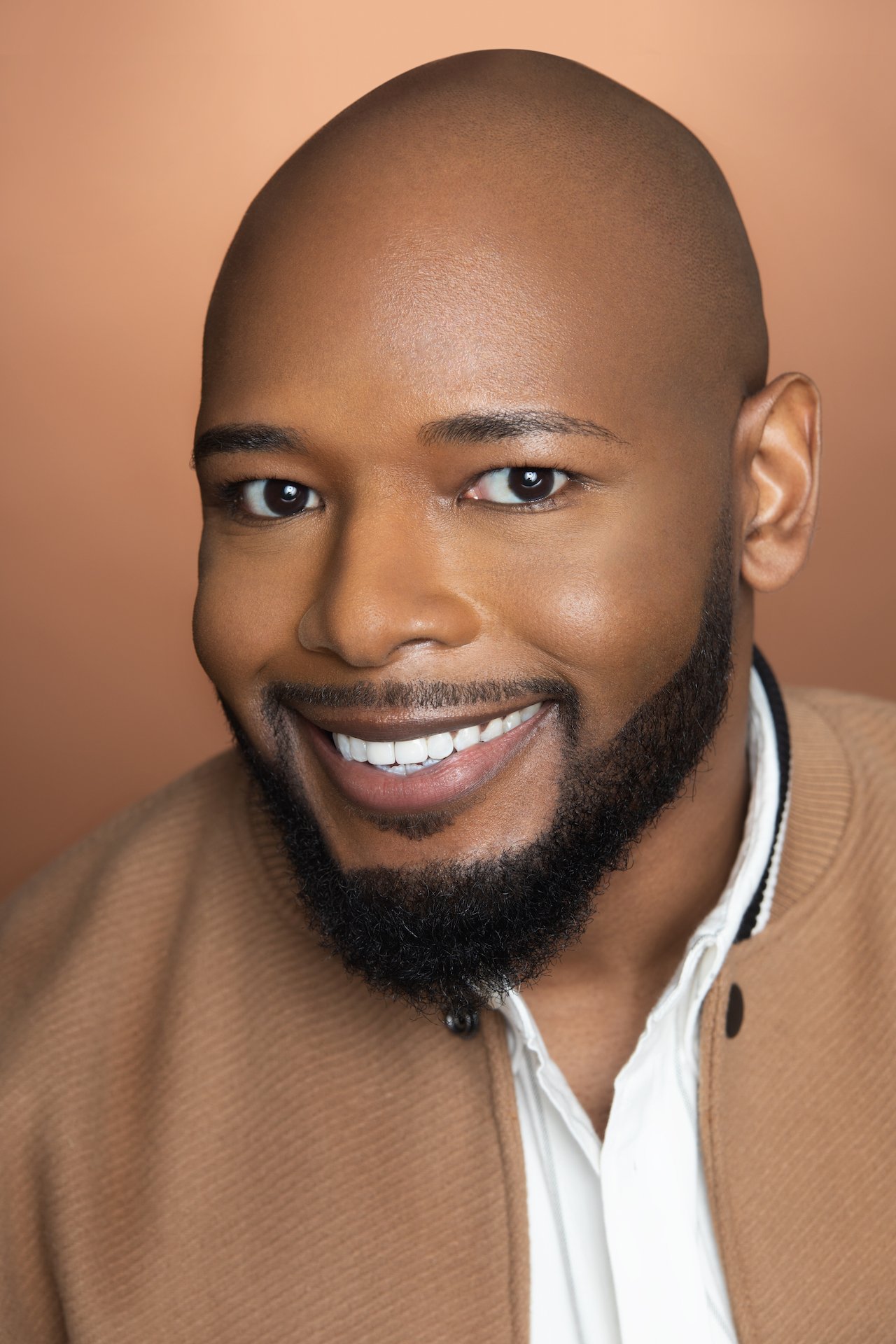 |
|
| photo: Derek Blanks/ crowdMGMT | |
Terry J. Benton-Walker is a queer Black author of young adult and middle-grade speculative fiction. His debut novel, Blood Debts (Tor Teen, $18.99), is a national bestseller, and his middle-grade novel, Alex Wise vs. the End of the World (Labyrinth Road, $18.99) is out now. He grew up in rural Georgia, and he lives in Atlanta with his husband and son. Shelf Awareness spoke with Benton-Walker about parenting, self-love, and Black and queer representation in his novels.
Let's get into Alex Wise vs. the End of the World first. Alex's primary power is the Sense, a sort of super empathy. What motivated this choice?
I wrote Alex Wise at a point in my life where I had done a lot of introspection and a lot of therapy, looking at past traumas and things that I'd gone through that inform the person I am today. One thing I noticed is that, despite everything, I maintained my ability to empathize with people, even when I wasn't as kind to myself. And the thing that I've come to learn is that empathy, even in our world, is a superpower. Being able to connect with someone else emotionally and feel for them and understand their past and what they're going through is a part of our larger purpose: to connect and build community. We cannot do that without empathy.
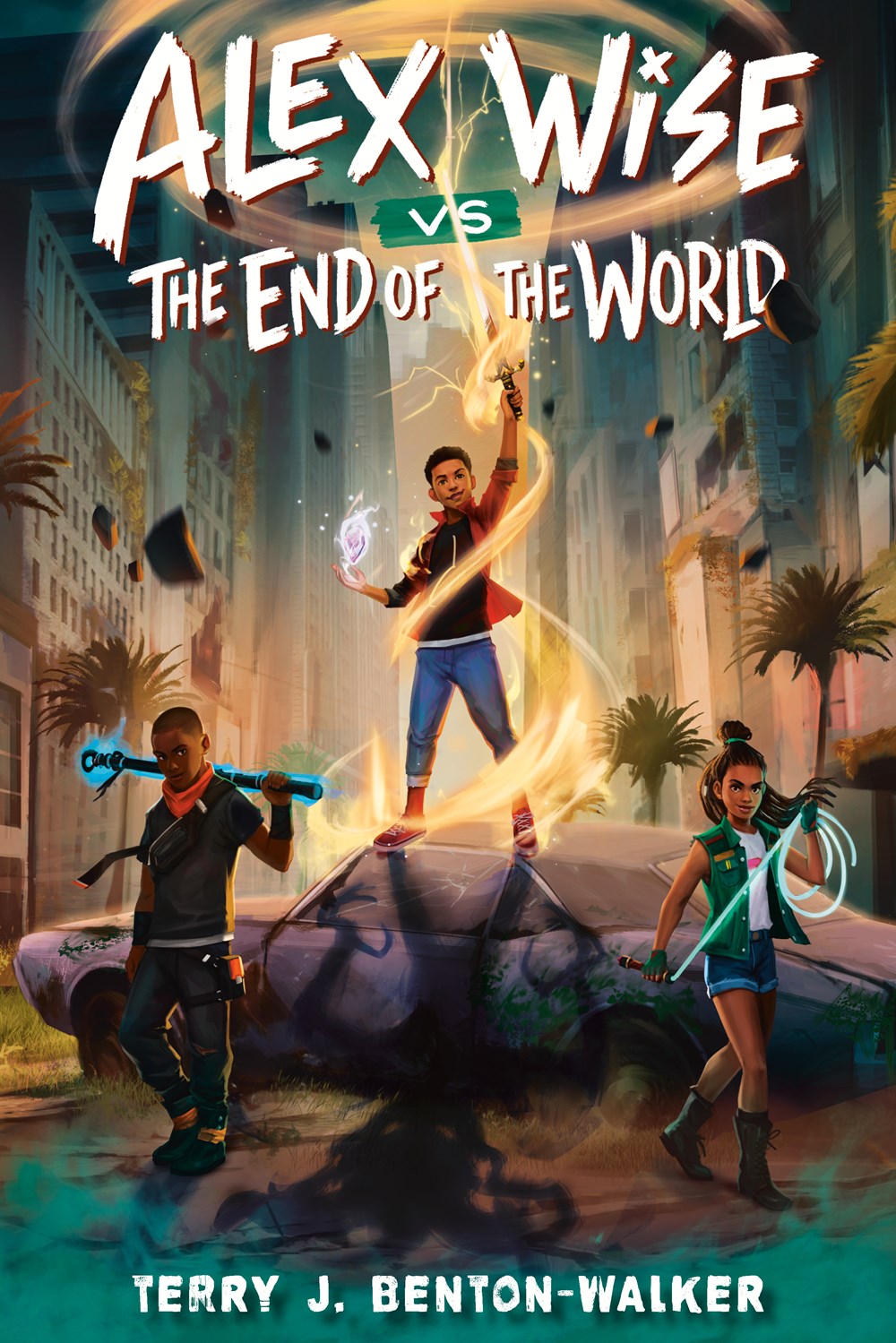 In Alex Wise, there's this theme of betrayal, and it has a pronounced impact on Alex's story. Why did you choose to have betrayal play such a significant role?
In Alex Wise, there's this theme of betrayal, and it has a pronounced impact on Alex's story. Why did you choose to have betrayal play such a significant role?
For Alex, the betrayal plot line was important because it's really important to have a strong support system around you, people whom you can depend on and who help you navigate this very confusing time. In a way, when we have to deal with such massive betrayals from the people we love and trust, that shapes how we view ourselves and how we view our place in the world. It was important for Alex to find a way past that betrayal, and to love himself instead of feeling devalued or less than.
One of Alex's primary battles is to fight against this constant thought that he's unworthy, and this is prompted in part by Alex's father's refusal to accept his sexuality. What inspired you to write about self-love and self-acceptance?
This story is very personal. I pulled a lot of personal experiences and emotional traumas and put them into the story because it is my hope that kids--especially Black, queer kids--see themselves represented and understand they have value, and they are worthy of taking space and existing just as they are. Hopefully it won't take them 37 years to love themselves, the way that it did me.
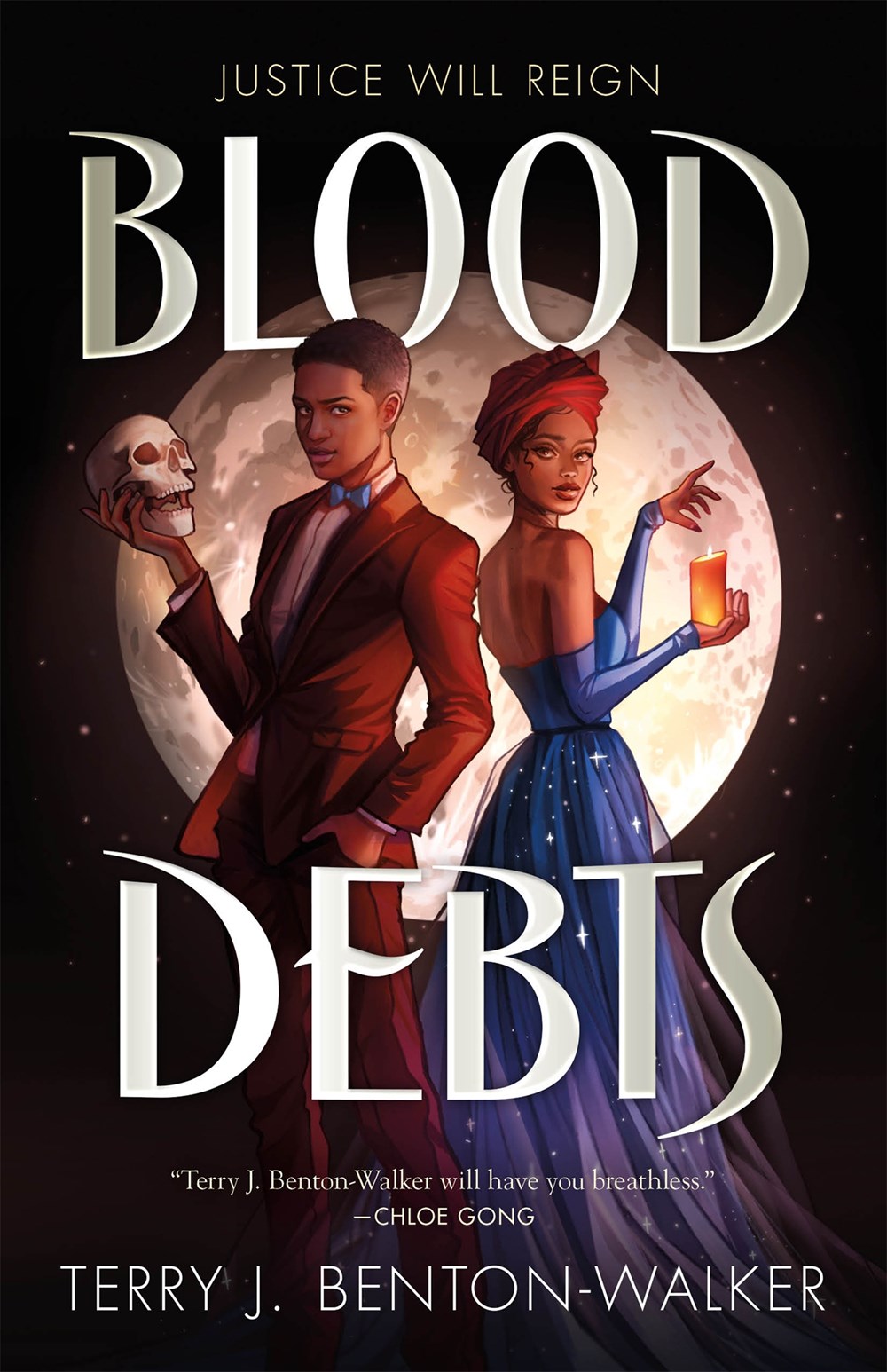 In both Alex Wise and Blood Debts characters experience familial trauma. For Alex, the trauma is more immediate, but in Blood Debts the trauma is generational. What were some of the experiences you had writing characters who were navigating these two different types of familial trauma?
In both Alex Wise and Blood Debts characters experience familial trauma. For Alex, the trauma is more immediate, but in Blood Debts the trauma is generational. What were some of the experiences you had writing characters who were navigating these two different types of familial trauma?
Generational trauma is much more complex to explore and break down, and there are a lot more complex emotions surrounding it. I wrote Blood Debts during a time in my life when I was really, really angry. Intergenerational trauma, systemic oppression, and the cycle of violence were things that I wanted to explore, but I felt like I needed a more mature landscape to be able to do that. The young adult characters and the young adult world provided that for me.
Alternatively, with Alex Wise, I wasn't angry when I was writing that book. I was actually sad a lot when I was writing that book. I had a lot of stuff going on in my life and in the world. And then I was dredging up all that old trauma to create Alex's character. Alex Wise is also really about Alex's personal journey and his internal struggle.
In both books, there are intimate sibling relationships. Is this pairing of characters something that's purely narrative, or does this come from your personal experience?
In Blood Debts, that sibling relationship was purely narrative. And I kind of wrote that from a place of hope and imagination. My siblings and I were always at drastically different life stages, and we never got a chance to be super close until adulthood. So, when I wrote Blood Debts, I made Cris and Clem 16-year-old twins and I got to explore a world of siblinghood that I had never had in real life.
With Alex Wise, that relationship between him and his sister is more reflective of my relationship with my own brother and sister. Like Alex, my mom and dad divorced when I was 13. As a result of that, I had to take a lot of responsibility looking after my brother. It was very taxing and it kind of altered our sibling relationship--instead of being a brother, I became a bit of a surrogate parent. A lot of the experience I had with my brother informed Alex's relationship with his sister.
That leads perfectly into the next thing I wanted to talk about: maternal sacrifice. In both books, there's the traumatic death of a mother. What motivated you to work with this concept?
I would say it was a combination of my experiences growing up with my mom as well as my own experiences as a parent. Growing up I knew that my mom would do anything for us. She struggled, but I knew that she was always doing the best that she could to take care of us. Being a parent, I have come to really understand my mom and the sacrifices she made for us. When I was writing the perspectives of these women who were willing to sacrifice their own lives to ensure their families' safety, it came from a very personal place.
I'm sure your own experience as a parent adds a lot of complexity to your writing.
Totally! In each story there is no perfect example of a parent. There are some parents who are much better than others, but there's no perfect example. Even the ones who are the best of the bunch have their problems. I think that's the thing I've come to respect more as an adult: me and my husband have come to realize that we're not perfect and that that's okay. We have to give ourselves grace.
You mention that you're specifically writing for Black audiences and even more specifically for people who are young, Black and queer. What message are you hoping to share with this community and how do you envision your work impacting their lives?
I want Black, queer kids to see themselves centered in epic fantasy and horror. I want us to be able to see ourselves represented across all the genres and subgenres but, specifically for me, in high fantasy and horror. Many people have spent so long absorbing content and interacting with media and characters that we would like to relate to. I hope to create stories that Black queer teens can see themselves in and relate to. I've really put a piece of myself into each one of those stories and it's usually centered around a very hard-learned lesson that I'm hoping no one else has to repeat. I'm hoping that they can feel inspired by these stories. --Cade Williams
Book Candy
Book Candy
The Collins word of the year 2023 is... AI.
---
"Rare 500-year-old Florentine Codex now unlocks Mexica (Aztec) culture online," Fine Books & Collections magazine reported.
---
Mental Floss showcased "15 books whose endings were changed for the movie."
---
A new online archive lets you read the Whole Earth Catalog and other Whole Earth publications, taking you from 1970 to 2002." (via Open Culture)
America Fantastica
by Tim O'Brien
Set against the backdrop of an unnamed but recognizable American presidency, Tim O'Brien's black comedy, America Fantastica, takes both the dark and the comic to epic proportions with simultaneous absurdism and poignancy. O'Brien (The Things They Carried; If I Die in a Combat Zone, Box Me Up and Ship Me Home) here offers his first novel in more than 20 years--a sprawling, madcap tale of road trips, crimes large and small, love, loss, and, most of all, lying. Like The Things They Carried, America Fantastica revels in detail and highly specific lists, so that the world it portrays feels robust and brimming.
Its opening lines set the tone, far-reaching and grandiose: "The contagion was as old as Africa, older than Babylon, wafting from century to century upon sunlight and moonbeams and the vibrations of wagging tongues. During the second decade of the twenty-first century, the contagion alighted in Fulda, California, riding aboard the bytes of a MacBook Air.... Reinvigorated by repeated utterance, fertilized by outrage, mythomania claimed its earliest victims among chat room patrons--the disappointed, the defeated, the disrespected, and the genetically suspicious.... The disease spread northward into Oregon, eastward into Idaho, arriving on Pennsylvania Avenue in January of 2017."
Readers first meet O'Brien's antihero in action. "On an afternoon in late August of the year 2019, after locking up the JCPenney store on South Spruce Street, Boyd Halverson strode out to his car, started the engine, sat without moving for several minutes, then blinked and wiped his eyes and resolved to make changes in his life. He had grown sick and tired of synthetics, rayon in particular." He departs his Kiwanis brunch early to head to the bank, where he presents a gun and leaves with just under $81,000 and the teller, "a diminutive redhead named Angie Bing." She is technically kidnapped, but Boyd will repeatedly try and fail to ditch her over the coming months. His name is not really Boyd Halverson and his entire résumé is a fiction. He had in fact been married, had a child, had an impressive career as a foreign correspondent and nearly won a Pulitzer Prize. But that life was built on lies, culminating when "at last he collided with the sudden, brutal, and well-earned catastrophe he'd been patiently anticipating for decades."
Boyd and Angie hit the road, seeking first Boyd's ex-wife, Evelyn, and then her father, Dooney, against whom Boyd holds a significant grudge. Their travels prompt movements by an increasingly colorful cast of bizarre characters. Dooney and his partner Calvin flee the possibly murderous Boyd from Port Aransas, Tex., to Bemidji, Minn., and onward. Randy, Angie's boyfriend, an almost-laughably amoral electrician/rodeo cowboy/burglar, tracks Angie from Santa Rosalía, Mexico, to Santa Monica, Calif., and beyond. Along the way, he meets two ex-cons at a diner in Los Angeles who latch onto his interest in an unreported bank robbery. These characters set the tone of a novel dealing equally in ludicrous comedy, political commentary, and pathos. They will be joined in O'Brien's imaginative, wide-ranging tale by a violent, egomaniacal CFO; a bank president and his wife, both with a gift and passion for fraud; a racist cop; an Amazonian CrossFit gym owner and amateur detective; a small-town sex worker with either an excellent act or multiple personalities. Events range from disturbing to ridiculous, often simultaneously, as when Boyd gets his toes broken with a monkey wrench by an unlikely pair of sidekicks. These characters and events, in a series of deftly drawn American locales, form a fantasmagoria, a version of reality that both bizarrely exaggerates and digs directly into the emotional truth of the real world.
O'Brien opens with a Yeats epigraph: "We had fed the heart on fantasies,/ The heart's grown brutal from the fare." His novel speaks of a nation that craves delusion and deception; O'Brien's profile of the 2019 United States is savage, blending satire and realism. "Off with their heads! Climatologists? Chemists? Off with their tongues! Who needs reality when you have Venom? Who needs history when you can manufacture your own?" Is it plausible that Boyd, an esteemed investigative journalist, exposed as a liar, might in turn expose larger wrongs than his own?
America Fantastica showcases a broad emotional range, as Boyd Halverson (aka Otis Birdsong, aka Junior, et al.) turns out to harbor some very real trauma amid a fabricated personal history, and at least one complex personal relationship. It is a story chock-full of lies or fictions, a theme O'Brien has explored in earlier works as well. "[Boyd] had fervently believed every word, every unearned moment of an unlived life. Yes, he was a Princeton graduate. Yes, he had distinguished himself in the Hindu Kush, scaled Mount McKinley, survived brain cancer, scored near-perfect on his SATs. But so what? Why risk failure when a fib was always conveniently at hand?" By the novel's end, readers will have learned--more or less, as far as we can tell--the "real" truth. This feels in some respects like a hopeful conclusion. But the truth itself is more grim than hopeful, which is perhaps the most realistic--truthful--possibility.
As in the earlier works for which he has long been recognized, O'Brien here demonstrates an electric combination of deadpan humor, vicious wit, and a masterful eye for detail in capturing a peculiarly American form of torment. --Julia Kastner
Route 66 Meets MAGA America
An Interview With Tim O'Brien
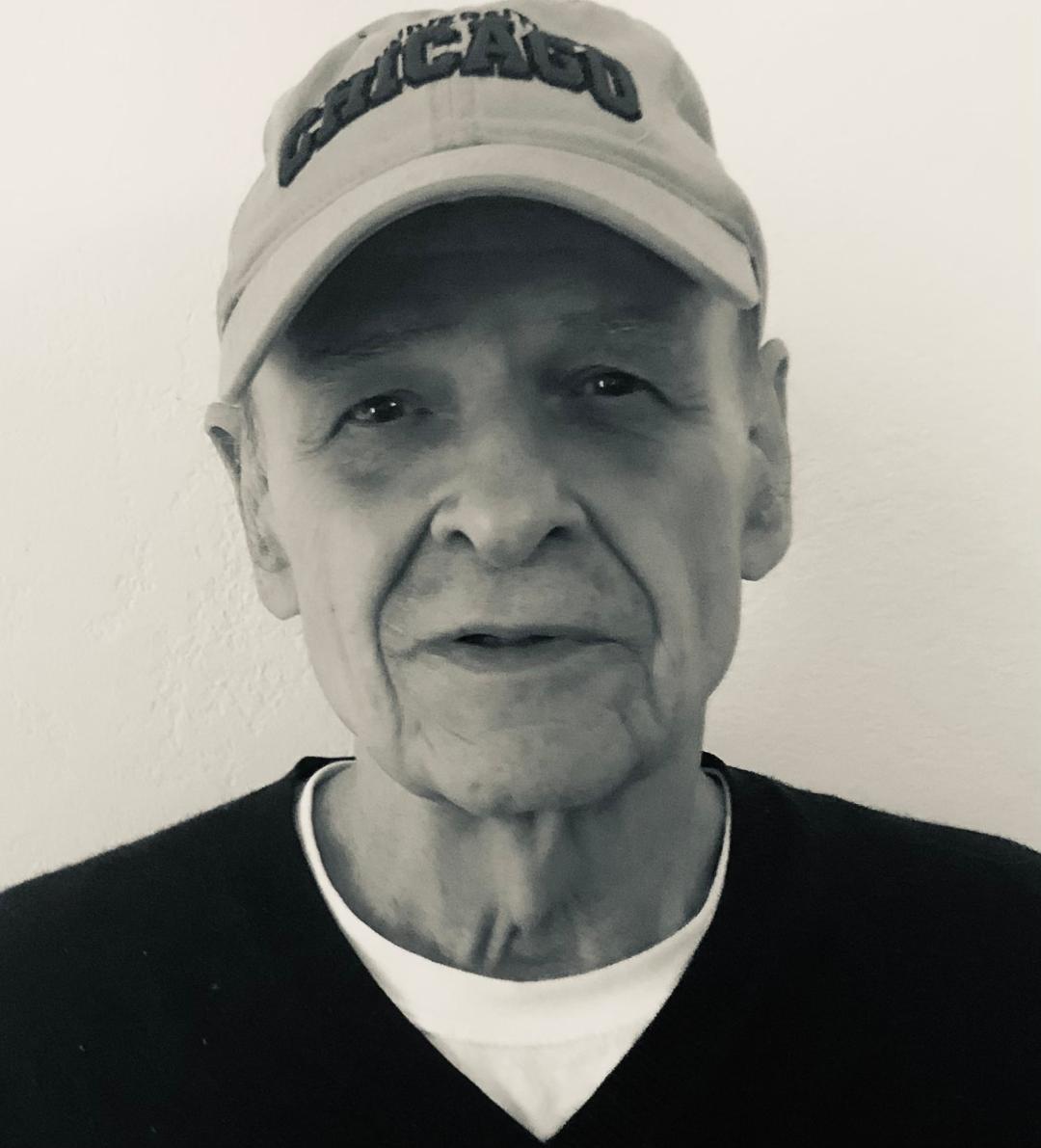 |
|
| Tim O'Brien (photo: Tad O'Brien) | |
Tim O'Brien is the author of the novels Going After Cacciato; The Things They Carried; In the Lake of the Woods; and others, as well as memoirs including If I Die in a Combat Zone, Box Me Up and Ship Me Home. He has won the National Book Award for Fiction, the James Fenimore Cooper Prize, and the Katherine Anne Porter Award, and was a finalist for the Pulitzer Prize and the National Book Critics Circle Award. O'Brien has been elected to the American Academy of Arts and Letters and the American Academy of Arts and Sciences. His eighth novel, America Fantastica, a wild ride through a paranoid nation, will be published by Mariner Books on October 24, 2023.
What brought you back to writing a novel after more than 20 years?
The character of Angie Bing. She came into my head, I don't know, 20 years ago, as did the antihero, Boyd. I tried to push them away for a long time. They just kept yapping at me. Put me in a book! Especially Angie. It was that voice inside my head for all those years that convinced me to at least try. And it was fun. I enjoyed her.
I was pretty determined not to ever write another novel. It's hard work and often frustrating, all the things that go with a 400-something page book. Five years of my life. I was a little reluctant to do it, but once I started, I got a kind of perverse pleasure out of it.
America Fantastica contains so many characters, events, places. How do you stay organized?
The organizational tool is my head. It's nothing much beyond that. Occasionally I would lose chronology, but then I simply go back and reread and rediscover.
The novel switches voices among many of those characters. How fun or difficult is that?
It was a great pleasure, going from voice to voice. There are some pretty nasty people in the book--most of them, in fact--and it was fun being nasty. I see it around me so much. It was a sort of Jonathan Swift/Mark Twain fun, curmudgeonly. You call a bank or an airline and they'll have that message on: "Our phone lines are unusually busy; please hold." They're not unusually busy. They're usually busy. In fact, they're always busy. Things like that were fun to strike back at.
Do you have a favorite character?
No. Characters, probably for all writers, are like your own children. You don't pick them. They're very different. I don't approve of most of the characters in this book, but I don't approve of most of the people I see on CNN and Fox, either.
This work of fiction is centered on the lying or fictionalizing of its characters.
It's been a theme that's gone through my entire work and probably my entire life, going way back even to my childhood. I grew up in a small town and spent a lot of my time in my own head, imagining I was not in this godawful place. That followed me to Vietnam and has followed me through adulthood. It's astonishing the things that we witness that seem almost impossible, incredible, especially during the Trump years. How can this be happening in a country I really had loved as a kid? It seemed as if I were living in a fairy tale that couldn't be true, and yet seemed true. And so all of my work has to do with this blend of our imaginations and the realities we see around us. This book probably is the most blunt about it. Boyd seemed to represent for me what I'm witnessing socially, culturally, and politically in this country, a kind of shameless lying or deceit. I wanted to have as a foil someone who was pretty certain about the world--Angie has a kind of religious certainty about the world. The tug of war between them was fascinating.
Angie came first?
They came together. I imagined her originally as a bank teller, and then almost instantly I imagined Boyd as a small-town entrepreneur (later a JCPenney manager), and within 20 minutes or so I had him robbing that bank as the novel begins. Robbing it essentially for entertainment, as a way of making himself move out of his lethargy and do something in the world. When he invited her along, or made her come along, a kind of Route 66 theme dominated, and it stayed throughout the entire book. It's sort of a Route 66 meets MAGA America kind of book.
I knew it would be set during those years. They were the years that I was living through, with my mouth agape as I watched the television set. It seemed appropriate to have a character who was a shameless liar and had been his entire life, and to find out why. Why do people do this sort of thing? There's a quote at the beginning of the book by Yeats: "We had fed the heart on fantasies,/ The heart's grown brutal from the fare." That's what I saw happening around me, that sort of fantasy: of a lost election being a winning election, for example. I wanted a hero who was part of the conspiracy world, coming up with these bizarre fantasies about the world and apparently believing in them, repeating them enough to believe in them.
By having such a human being as one of the two main characters in the book I felt I was trying to get into what made people do these sorts of things. For my hero, Boyd, it goes back to his childhood, as we learn late in the book. He began, even as a kid, living in a fantasy world as a way of escaping the world he was in. It can have terrible consequences, and did for him: a broken marriage, a lost career. But on the other hand, fantasy keeps us going. The fantasy that tomorrow will be better than today. Maybe fantasy isn't the word, but the hope or the dream that things will improve for all of us. I'll win the lottery, I'll have a great time in Yellowstone, I'll meet the girl of my dreams or the boy of my dreams. I think we need fantasy. So there's that tug of war, when what we need can have terrible consequences. That will always fascinate me, and has since I was a kid.
What are you working on next?
I'm working on my golf game.
Nothing. I'd been working on this book all the way through page proofs and so on; it still feels like in my head I'm working on it.
Are you one of those writers who's never done, even when it's printed and published?
I am. I've made changes in The Things They Carried; In the Lake of the Woods; [Going After] Cacciato. I slip them in when they print a paperback edition. Most of them minor and none of them noticed, except by scholars. I did have a letter from a high school English teacher once who disputed my changes. --Julia Kastner
Rediscover
Rediscover: Anthony Holden
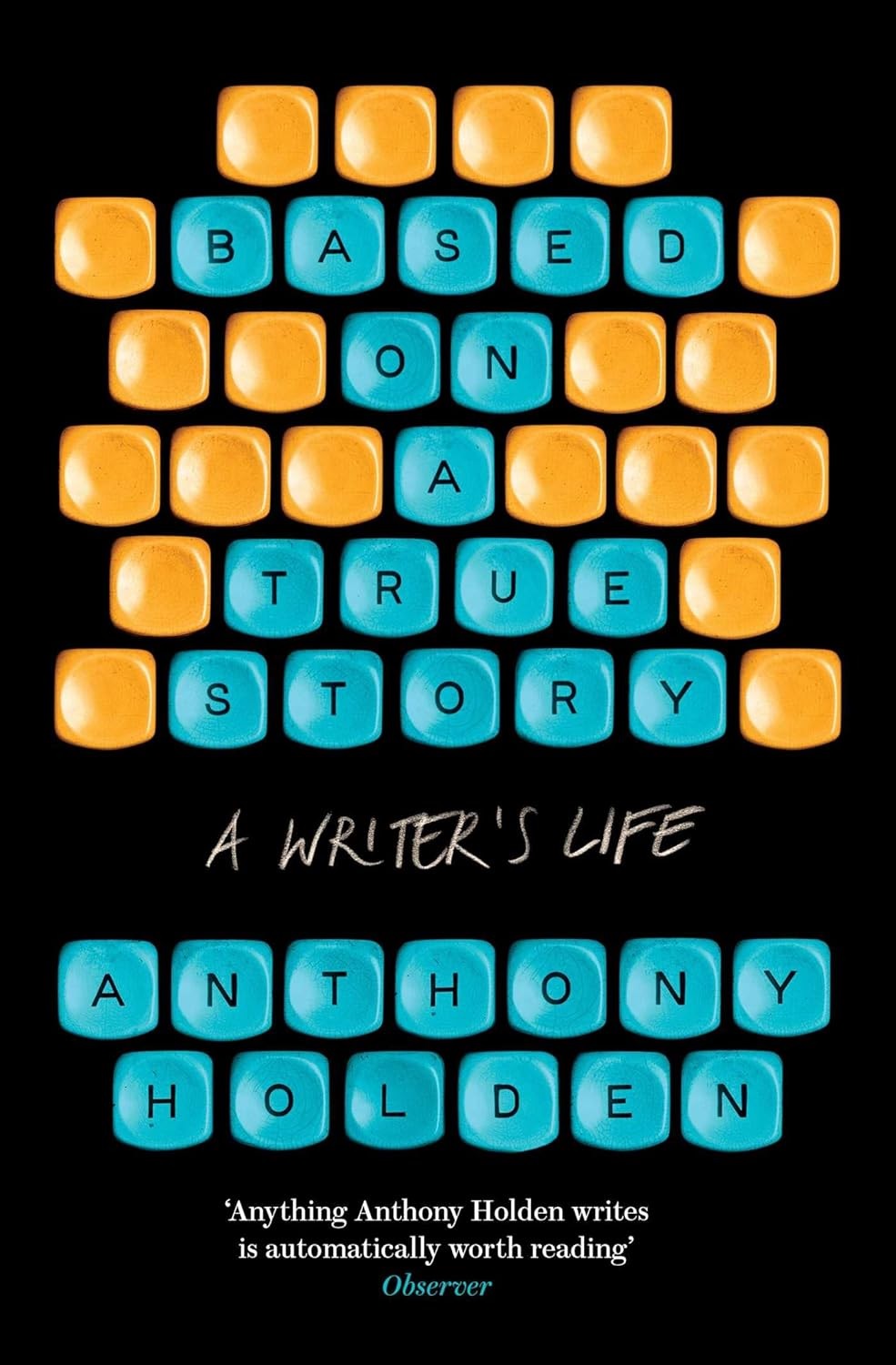 Anthony Holden, "a polymathic and prolific British author, journalist and poker player who found accidental fame as a royal biographer and critic of the monarchy, but who was happier writing books about Shakespeare, Laurence Olivier and Lorenzo Da Ponte, Mozart's librettist," died October 7 at age 76, the New York Times reported.
Anthony Holden, "a polymathic and prolific British author, journalist and poker player who found accidental fame as a royal biographer and critic of the monarchy, but who was happier writing books about Shakespeare, Laurence Olivier and Lorenzo Da Ponte, Mozart's librettist," died October 7 at age 76, the New York Times reported.
Holden was writing the "Atticus" diary column for the Sunday Times in London when, in 1977, he was sent to cover Prince Charles's visit to Canada to open the Calgary Stampede rodeo. The column led to a book deal to write a biography of Charles. When Prince Charles: A Biography was published in 1979, "it was mostly charitably reviewed, even by its subject. Prince Charles told Mr. Holden that he liked the fact that the book depicted a life that 'was not all wine and roses,' " the Times noted.
He continued to receive royalty-themed book deals for works like Their Royal Highnesses: The Prince & Princess of Wales (1981), A Week in the Life of the Royal Family (1983), and Anthony Holden's Royal Quiz (1983). In the late 1980s, his publisher asked him to write a second biography of the prince, which became Charles (1988), a "chilly picture" of the marriage of Charles and Diana.
Recalling the equally chilly reception to the book in his memoir Based on a True Story: A Writer's Life (2021), Holden wrote that the Daily Mail ran a piece declaring he had left his first wife, a "classy pianist," for a "blond American bimbo"; was living the high life in a mansion on the Thames; and had slandered the prince to pay off his gambling debts. What wasn't reported, Holden noted, was that his house and car were ransacked more than once, and that his research material about Prince Charles was stolen.
Holden wrote more than 30 books, including William Shakespeare: The Man Behind the Genius (2000); Laurence Olivier (1988); The Wit in the Dungeon: The Life of Leigh Hunt (2005); Behind the Oscars: The Secret History of the Academy Awards (1993); Big Deal: One Year as a Professional Poker Player (1990); and The Tarnished Crown (1993).
"Tony was a real scholar," said Tina Brown, the author and magazine editor, who was a longtime friend. "He was immensely talented, but he did it with such a light touch. He could write the best gossip column. He was the person you turned to to do the elegant, smart take--very fast." She called him "the classic Grub Street reporter," adding that the "royal stuff was almost a pass-through situation, but he did it brilliantly."
A serious stroke in 2017 "barely slowed him down as he typed every day with his one good right hand and gave lunches where doctors' advice was ignored and bottles were opened." His final book was Based on a True Story: A Writer's Life (2021)," the Guardian reported, adding: "In a trade where schadenfreude is often the norm, Tony was the loyalist of loyal friends, which is why he had so many all his life."


